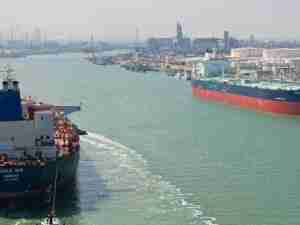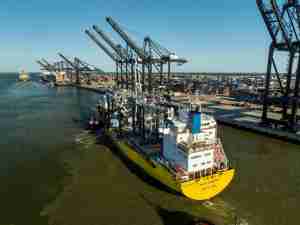Seven of eight terminals at the Port of Los Angeles have been shut down by the action, along with three of six terminals at the neighboring Port of Long Beach, officials at the facilities said.
The strike is the largest work stoppage at the ports in a decade, but its effects on the movement of goods could ultimately be limited if workers return soon. Many goods destined for sale in the holiday shopping season have already moved through the ports.
Longshore clerks at the ports are in a dispute with terminal operators over staffing issues.
The clerks, represented by a unit of the International Longshore and Warehouse Union (ILWU) Local 63, took to the picket line on Wednesday, and other key personnel such as crane operators also represented by the ILWU have refused to cross picket lines.
Stephen Berry, lead negotiator for port operators the Los Angeles/Long Beach Harbor Employers Association, said the strike marks "a dangerous escalation" in his group's ongoing dispute with the union representing the clerks.
He added that if the strike continues "the negative effects on jobs and the economy will be felt nationwide."
Most of the goods for sale in the holiday season have already moved through the ports, said Art Wong, a spokesman for the Port of Long Beach.
"The goods will be here, and they'll move whenever they resolve this, so hopefully it will be very quickly," he said.
The clerks say the Harbor Employers Association wants to outsource jobs they currently handle. The association counters the union wants them to hire unneeded workers.
The strike is the largest shutdown at the combined ports since 2002, said Phillip Sanfield, spokesman for the Port of Los Angeles.
The Port of Los Angeles is the largest U.S. container port by volume, and last year goods valued a combined $273 billion passed through the facility. The combined ports of Los Angeles and Long Beach are the busiest U.S. cargo shipping complex. (Reuters)










